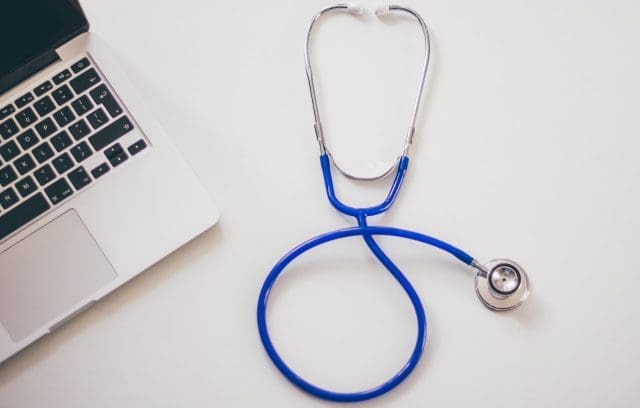Since women tend to be more familiar with health services from using contraceptives and doing regular checkups like cervical screening, as well as going to the doctor throughout pregnancies and after giving birth, you’d think that they’re more likely to feel comfortable enough in a healthcare environment so that they can talk about health problems freely whenever needed. Women are also typically the ones that take the kids to the doctor.
Then there’s also the stereotype that men are less open about many things, not just their health issues. After all, aren’t men from Mars and Women from Venus? Well, no. It seems that that is not the case. At least when it comes to talking about men’s health, we’re more similar than you’d assume.
A U.S. survey conducted by the Cleveland Clinic in 2018 on 2,200 Americans found that 56% of men prefer not to talk about their health problems with anyone, not even their doctors. The survey also found that 57% of women feel the same way.
Although 88% of men and 85% of women think it’s important to talk about their concerns regarding health issues with their partners, only 15% of men and 14% of women actually do so. It turns out we’re not that different after all.
This wasn’t the first time Cleveland Clinic has conducted this type of survey on men’s health. However, it was the first time they collected data from women as well. This year’s results showed that 61% of both men and women failed to see a doctor even though they needed to.
Without the data from women showing these similarities between men and women, many of us would be led to believe that men neglect their health and are so tight-lipped because of stereotypical attributes we associate with them, such as not wanting to seem weak. Yet, it seems that we all have to learn how to speak up about our health concerns and stop avoiding our doctors.

Why It’s Important to Talk about Erectile Dysfunction
Sexual health seems to be a particularly difficult subject for many men, and the survey showed that 43% are unwilling to discuss ED or erectile dysfunction. However, it negatively affects their level of confidence, relationships, and in some cases, even their telehealth.
They’re embarrassed to talk about these things and would rather suffer in silence. Still, it doesn’t have to be that way. If you don’t feel like you can discuss these problems with your partner, at least speak to your doctor. Doctors discuss and fix medical problems such as these daily.
Moreover, erectile dysfunction can be a sign of another health problem, such as heart disease. A third of the men that are hospitalized due to a heart attack also have ED. Heart disease is the leading cause of death for men. You should be particularly concerned if you have high blood pressure, smoke, don’t exercise, and have a family history of heart disease.
Considering that 81% of the male participants in the survey stated that they’re more concerned about heart disease than they are about sexual health problems, they should see the value of overcoming their embarrassment and talk to their doctors about ED. Your primary care provider can review heart disease risk factors and treat ED. If this initial treatment doesn’t work, they can refer you to a urologist.
Diagnosing Yourself on the Internet


If they notice any health changes or unusual symptoms, both men and women are just as inclined to try to self-diagnose using the internet as they are to visit a doctor. To be more precise, the survey found that 27% of men and 27% of women look up their symptoms online, while 27% of men and 26% of women talk to their doctors.
The internet can be a valuable resource because you can use it to better understand common men’s health conditions and expand your medical vocabulary, making it easier for you to talk to medical professionals. Having said that, you need to keep in mind that the reliability of the information you find online varies. What’s more, it’s difficult to put this information into context.
Ensure that the medical information you read online comes from reputable sources and has been written or vetted by certified healthcare professionals. Even so, you will need a doctor to help you interpret this information correctly.
Nowadays, with telehealth healthcare services, men have more resources than ever, and access to health care has become more convenient. All this means that there’s no excuse for you not to take control of your health.
What Motivates Men to Go to the Doctor?


According to the survey results, 67% of men consult their doctors if they notice blood in their urine. This is good news because this symptom can indicate medical conditions such as kidney stones and tumors, so it’s a good idea to have it checked out. 49% of men see their doctors if they have pain in one or both testicles, and 59% of men consult their doctors about changes in their testicles. These numbers should be higher since a nodule or mass in the testicles can be a sign of testicular cancer, which is the most common form of cancer among men between the ages of 15 and 45.
Although it’s not that common, it’s better to start treatment early, and survey results have also shown that only 41% of male respondents routinely undergo testicular self-exams. These self-exams should be performed once per month.
46% of male respondents stated that they would see a doctor if they had painful erections. Priapism, which means an erection that does not subside after intercourse and is typically painful, is an emergency because it can cause irreversible damage to the penis. If you have a painful erection, but it subsides after intercourse, it may be a sign of Peyronie’s disease, which is treatable. However, Peyronie’s disease is not an emergency, as in the case of priapism.
Featured Photo by Negative Space from Pexels




